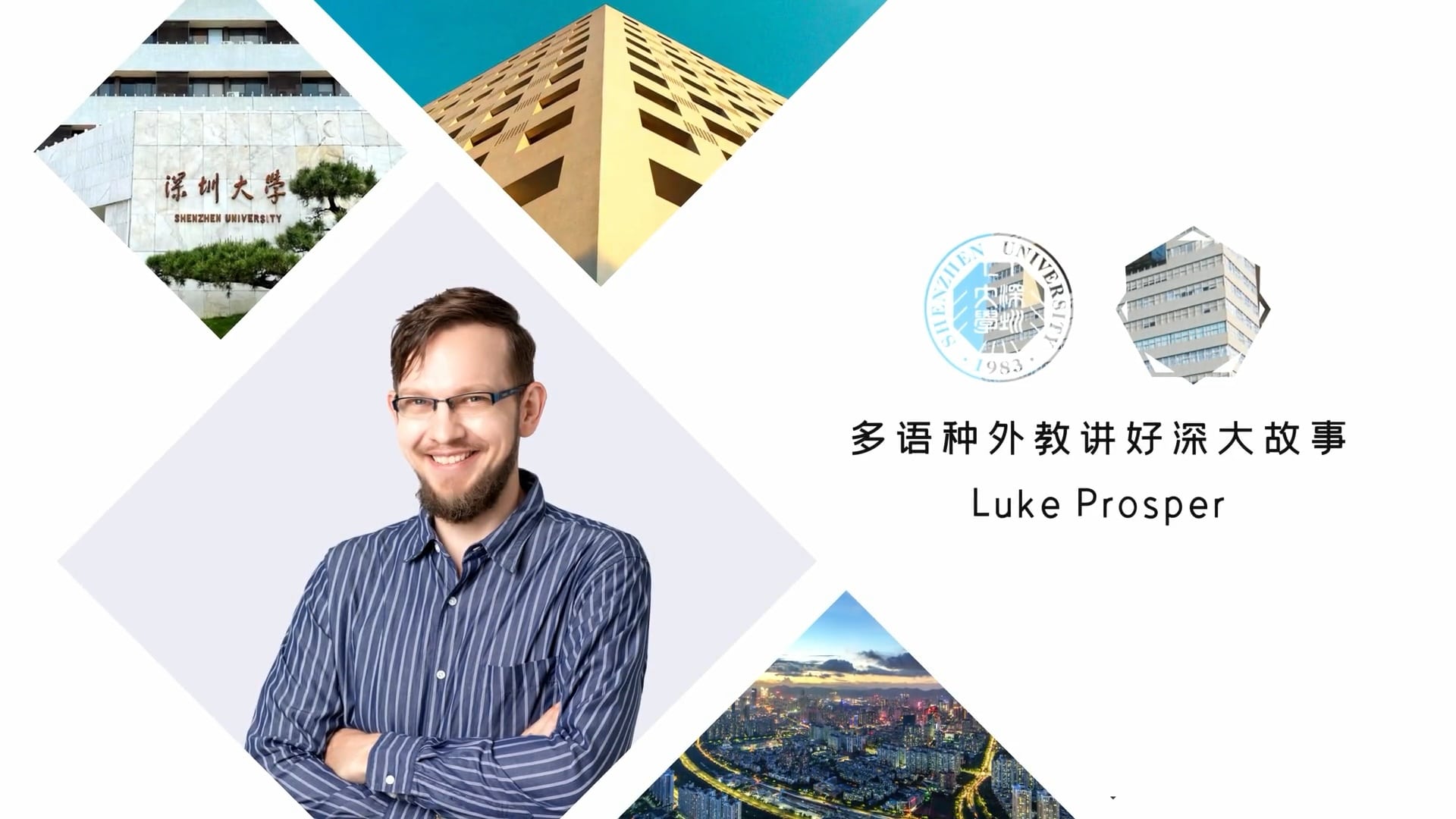
This review reflects the writer’s experience between 2013-2015 at Education in English (EIE)’s branch at Jiangxi University of Finance and Economics (江西财经大学, a.k.a. JUFE), as well as a 2014 summer school in Dalian.
I believe that how much a foreigner gets out of his stay in China depends on how much is he willing to leave his comfort zone, disassociate himself from other foreigners, engage with locals, and learn the language. This more so than many other countries which are either completely modernized or too similar to the West. In this regard, JUFE is a reasonable place to immerse oneself in a moderately advanced but still traditional Chinese environment. At the same time it is a reasonable place to teach ESL without the pressure or oversight from money-minded supervisors sometimes found at training schools. Personally speaking I had a great time there but some of this came from my attitude and enthusiasm about the language and locals. Objectively speaking there are some drawbacks which I will cover below.
First, most of the positive aspects revolve around JUFE itself, and not the intermediary company EIE that places JUFE’s international school teachers. Here in Nanchang, your true boss(es) are far away and generally only step in if something major happens or just to pay a yearly visit. There is a local helper responsible for your daily needs, but otherwise you are in daily contact with the school officials and students themselves. One of the more experienced teachers is designated the Director of Teacher Affairs and reports to the boss Richard. He is the person who ends up being your effective boss during your stay. While I was there he was a man named Bob and he was overall a sympathetic individual who gave you enough space to do what you want and not be too picky about company policy. My experience with the top man Richard is very limited. In person he seems friendly, but at the same time I have heard he can be stingy and business-minded when it comes to education decisions. This probably puts him in the middle of the pack as far as for-profit Chinese school operators go, acceptable but not exactly encouraging. Fortunately your interactions with the top brass are limited. As long as you teach adequately and do not do outlandish things they will not bother you.
As for the city itself, do not come here expecting to live the wild life of an expat in Beijing or Shanghai, being able to ride the subway to high-scale night clubs at whim, Western delicacies within easy reach, and numerous cultural attractions to keep you entertained for a year. What you will get is a middle-tier provincial capital that is just getting its first subway line next year, where the buses are crowded, streets often dirty, Western grocery stores rare, and Karaoke bars plenty. If you want glamor and cannot find your own entertainment at school you will get bored quickly. I myself found no problem attending night lectures in Chinese with my own students or attending various ‘career-fair’ talks or promotional lectures for training schools– all the things you would expect at an economics university, but if you don’t like learning Chinese or feel out of place among undergraduates this is not for you. In theory you can ride buses to downtown but that can take 1-2 hours and I don’t think there is enough there happening to make a single foreigner feel more comfortable. I really think here you either bring you own company via spouse or children, decide you want to feel like you’re still living at home at stick like glue to the other foreign teachers, or learn to interact with the students on their own level, foremost linguistically but if that is too much work for you at least learning to be a student again, sitting in on classes, eating at the cafeteria with them, playing sports, etc.
For a certain set of foreign teachers this is probably too much of a strain, but for young people it is not, and I think it is one of the strengths of being at a place like JUFE. Unlike a training center at a big place like Beijing, you teach the students semester-long or even year-long. If you make the effort, you can see them everywhere every day, and a fair number of them will be curious or bold enough to treat you as something more than a foreign English teacher. While the school is not top-tier, within the province it is highly regarded and attracts many reasonably talented students each year. The international school as the name implies has a higher English-level requirement and many of its students are reasonably fluent. But not all are. You may find that most of the more motivated and capable students are female, which is partly to do with the kinds of majors the school produces (males tend to gravitate toward the sciences) as well as cultural reasons. But if you wish to practice you Chinese I have found it quite reasonable to converse with them in Chinese outside of class and they don’t mind, even more so the students from other divisions at the school.
Logistically JUFE seems quite good. The apartments are fairly modern and spacious (in comparison to other Chinese apartments I’ve been in) and are located 2-minutes walk away from the teaching building. The cafeteria is a 5-minute walk, and a moderately-sized Chinese grocery store is across the street. Most foreign teachers however prefer to get their groceries from a distant Western supermarket that requires the services of a weekly driver who shuttles them. I myself at in the cafeteria or local restaurants. There is a local movie theater and various small shopping streets/malls nearby, so most of your life is restricted to campus.
In terms of payment EIE/JUFE seems middle of the road, with your monthly salary running between 5000-6000 depending on your education and experience. If you stay on for additional years you will get slight raises, but it is only really noticeable after the second year. Note that they don’t reimburse you for your visa/ paperwork fees unlike many other companies. On the other hand the year-end flight reimbursement is somewhat larger (10000 yuan).
In terms of teaching you are assigned about 7-10 classes a week, equaling about 14-20 hours of work a week. The classes are split among freshmen and sophomores in the international school, with freshmen taking writing, reading, and oral English, and sophomores taking business English and speaking. The most hated class among students and teachers alike is the writing class, but the DTA is usually fair spreads the work fairly. The other classes are reasonable. The textbooks can change each year and generally are fairly mediocre, which is unfortunate since more foreign teachers in China are not trained enough to craft a good curriculum by themselves. What ends up happening in my experience is that teachers either blindly teach the textbook and bore everyone or go off the track completely and teach random things which do not benefit the students much. Good teachers do come sometimes, of course, but in general I feel that the students do not take the foreign teachers’ classes very seriously (apart from the best students). They already theoretically have learned all the grammar they need by the time they graduate high school, and their vocabulary level can sometimes be surprisingly high. They also take other English classes from Chinese teachers, to say nothing of their core major classes like accounting and math. These are not always taught in English but they use English textbooks. The upshot is that you may feel demoralized by how little effort students sometimes put into your class. This in turn makes you teach more sloppily, grade simplistically, or turn the class into an entertainment show. I don’t think there is a real way around this situation. Chinese students already take far more classes of lower quality than their Western counterparts, it is hard even for a fresh foreigner to change their attitude participation and self-motivated education. Many of them plan to study abroad after 2 years and regard their time at a place like JUFE as simple preparation for the real work.
But I do not think this should discourage you too much. You can find ways to drum up (read ‘force’) participation and sustain student interest, and unlike training centers, at a university job you can teach sustained lessons over a whole semester if you wish. You can also introduce subjects interesting to you in some of the classes like reading (I introduced Western mythology and Mesopotamian history). Another thing that is nice about a place like JUFE is you can request to teach certain classes of students repeatedly over your time here. If you stay for 2 or more years you can get quite attached to them, provided you have a good rapport with them. Although as a foreigner and a teacher there will always be a little bit of distance between you and them, I have found that if your Chinese is good enough and your enthusiasm high enough you can learn a lot from them and form friendships of the sort you wanted when you came to China in the first place. While here I didn’t really spend a lot of time with the 6 or so other foreign teachers here nor really with the shop owners or Chinese teachers, all of whom had their own busy lives outside of school and certain cultural reservations about dealing with foreigners. But the students were almost always there and became my best companions while in Nanchang. They were young and modern enough to appreciate my Western mannerisms but provincial enough to still be eager to interact with foreigners.
Overall I give the current situation at JUFE a positive review, with the understanding that it comes primarily from the convenient, easy lifestyle within the small confines of a school, as well as with the understanding that it pertains to the school per se, and not to the intermediate company that recruits you and pays your salary. That company is not bad, but it’s the business end of what you do here and I don’t think you should come to Chine as an ordinary ESL teacher if business is on your mind. They are helpful getting you here and if you prefer the extra structure that’s fine, but after you’ve been here a while you can go out on your own and work for a university directly without the middle-man taking a cut of your salary (comments: some companies cut your salary, ISAC is not one of them). As a final example of how things relate, shortly before I left the job in 2015 someone broke into my school-based apartment and stole my computer and cash. The same thing happened to a few other teachers. On the second day the international school liaison officer met with me, helped me file a police report, offered a modest compensation (less than half the value of the computer, but I felt it was a reasonable effort) and sincere apology. The head boss of the company did not even bother to contact us via email to express sympathy, explaining indirectly it was the school’s business. Technically he was right, and I don’t think he was obligated to compensate us. I don’t even think the school was obligated to compensate us, but they did it out of good will. I think that says who’s the real player here and who you should cultivate good relations with. On the whole I think working for Chinese public universities is the ‘sweet spot’ of the ESL industry in China. Not as intensive or obligation-heavy as top-tier training schools like Wall Street English, not as psychologically draining as teaching small children or young teenagers, more trustworthy than low-level training schools, and having more institutional support than teaching privately. You are afforded great freedom in what you teach and your teaching hours are far fewer relative to other types of schools (if you line up ducks in a row and teach right you can be adequately effective and need very little prep-time). But the best part is that you can be part of the school community if you want, especially at a place like JUFE where you live on campus. You can join a club, attend student classes when you have free time in the day or night, go to special lectures, and run into your students everywhere on campus. If your Chinese is intermediate level or above, you can recruit them to help you improve for a fee cheaper than professional teachers (ca. 40 yuan/hr). For a dead-end job like ESL that kind of fringe benefit it vastly important. If you want to move on from this kind of work you have something to show for it, and having improved your Chinese noticeably or at least having a cultural-immersion experience vastly outweighs the extra money you could get at a private job.
Regarding Dalian I will only say a few things. I worked there for the summer school, which may differ in respects from the school-year operation. Nevertheless both are technically private schools operating on the Dalian University campus. This means it’s more like a training school, with students coming to specifically improve their English in view to study abroad or other reasons. Classses are much smaller. The summer school divided students into young age, middle school age, and highs school/college age. The children were often intolerable to teach but the other students were acceptable. The facilities on the whole are rather small, got fairly hot during the summer, and don’t have that expansive feeling of teaching within the international school, but the support staff of 3 or 4 women are professional and attentive. In general you will teach general grammar and dialogue exercises. The major disadvantage of this place is the crappy apartments they put us in. They are just outside the school campus in a somewhat crummy neighborhood. This is probably the average person in Dalian lives, and it was tolerable for a month, but if I had to live in that place for a year I would be dying to leave by the end. I much more recommend JUFE’s luxurious apartments. But if you just want to experience the Northeast a bit, staying there for the month-long summer school might be acceptable.
(Credit: www.eslteachersboard.com)

 JUFE Campus
JUFE Campus JUFE Campus
JUFE Campus

